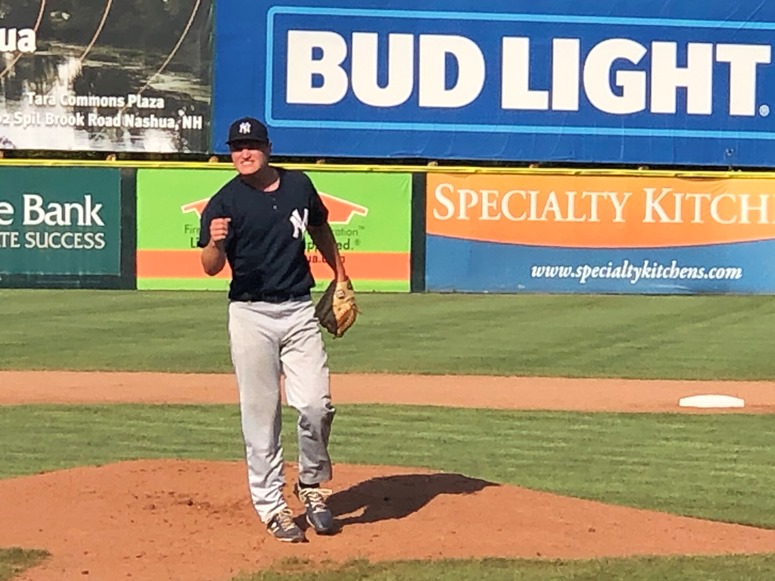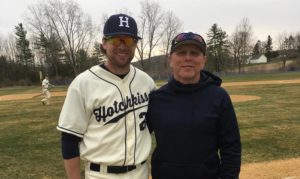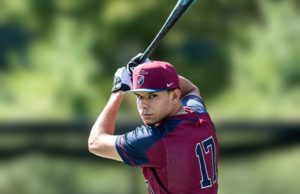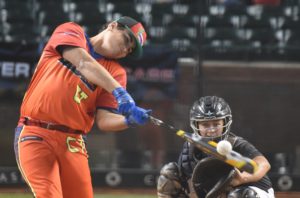
Our latest New England Baseball Journal podcast caps a summer that was unexpectedly busy from a baseball perspective, with plenty of showcase events and scouting opportunities for high school and college prospects around New England. One player who shined at those showcase events for high school seniors was North Attleboro pitcher Dennis Colleran.
Colleran impressed scouts with a fastball that topped out a 97 mph at events like the Area Code Games, East Coast Pro Showcase and Summer Rivalry Classic. In the New England Baseball Journal Podcast, he describes how he managed to stay in peak form through the stoppage during the spring. He also shares the key to adding velocity as a pitcher.
“My biggest thing is being very flexible in terms of the legs, arm and core,” Colleran said. “It all has to be flexible, but also strong and compact. You have to control your body. The biggest thing for me when I started seeing jumps in velocity was when I dedicated myself to a pitching program, and I was doing something every day and maintaining that through the baseball season. I’ve talked to dozens of pitching coaches and gone to lectures, and I pieced together something that works for me.”
The second guest on the podcast is UMass Lowell baseball coach Ken Harring. One of 19 Division 1 coaches in New England, Harring talks about what the fall will look like on the Lowell campus.



